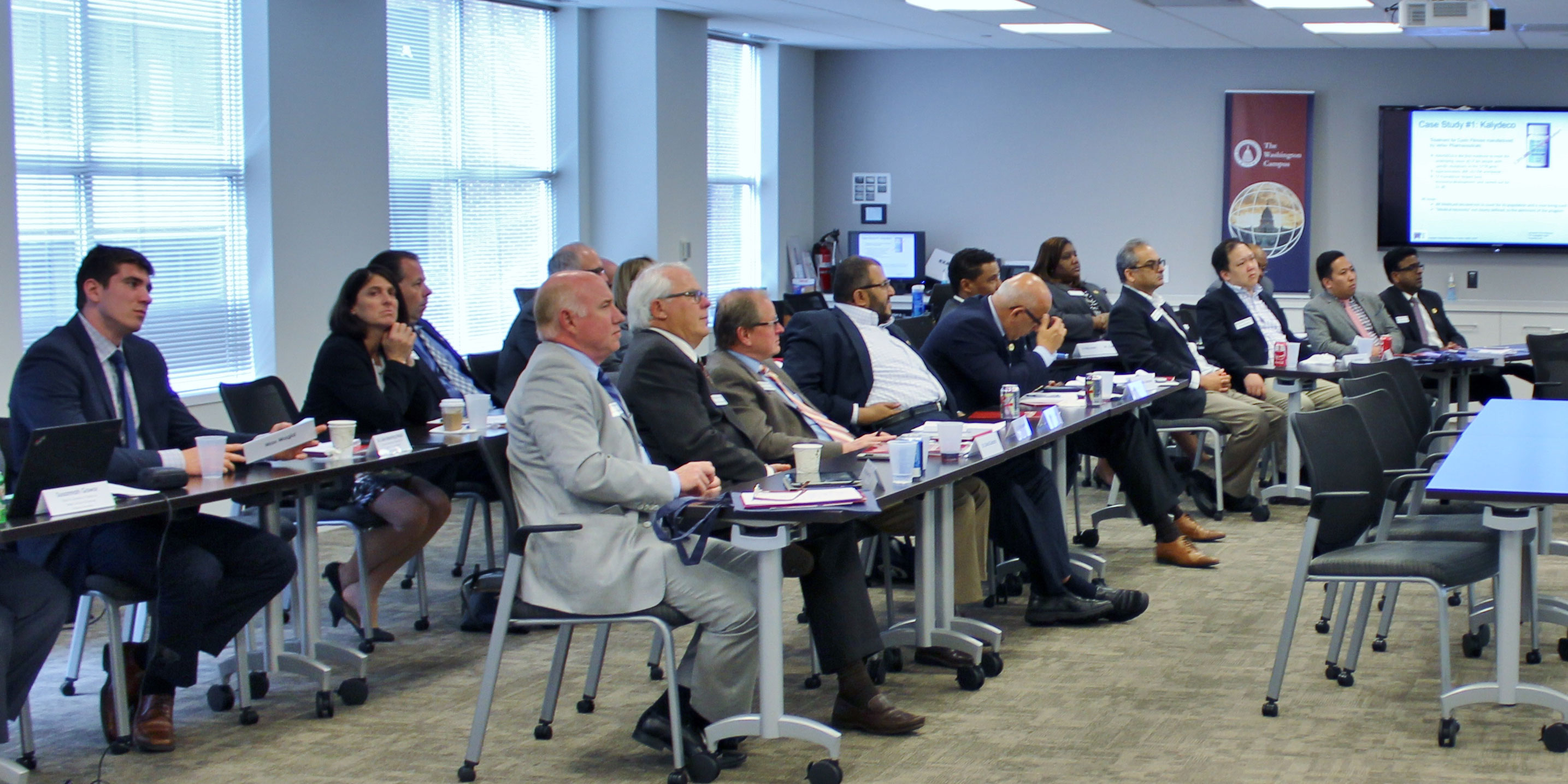By: Shane Simmons
Life’s experiences can mold a person’s future, beliefs and in the case of OrthoIndy surgeon Ed Hellman, MD, MBA’16, his future career plans.
Dr. Hellman, an orthopedic surgeon for more than two decades, had a moment of revelation in Washington, D.C. The former IU School of Medicine professor wasn’t in the nation’s capital as a tourist but as a physician MBA student, and that week-long immersion in a healthcare policy course re-ignited his passion to become a patient advocate.
“This trip gave me much more perspective about how laws and regulations are made and how it can affect how I can practice and how I will be reimbursed in the future,” said Dr. Hellman, reflecting on his experience during the Healthcare Policy Course in Washington D.C.

Exclusive to the Kelley Business of Medicine MBA Program, the Healthcare Policy Experience is a required, 3-credit course held at The Washington Campus each spring. Students engage with policy makers and regulators to gain a deeper understanding of policy trends, how public policies are developed, and how to navigate the regulatory environment.
“In this class you have direct access to influential people,” said Dr. Hellman, reflecting on the numerous guest speakers who addressed the Business of Medicine MBA students. “Direct access to these people one after the other for the entire week can’t be duplicated in a classroom in Indiana or elsewhere.”
Conversations with influential legislators, like former U.S. Rep. Mickey Edwards and former Senator and Secretary of State Spencer Abraham, particularly motivated Hellman and moved him to think more critically about the future.
“For doctors, the better versed in business we are, the better decisions we can make for our patients,” Dr. Hellman said of the reason he decided to pursue a Physician MBA at Kelley Indy.
“I can see myself working as a surgeon for maybe five more years; I’ll be 62 then,” Dr. Hellman said. “While I could simply retire, I can’t see myself doing nothing at that age. So what marketable skills do I have other than surgery? Two years ago I would have said not much.”
But Hellman, who’s participated in OrthoIndy’s lobbying program, said he learned key negotiating skills from Sen. Abraham that will expand his knowledge and approach when advocating for patients.
“Abraham described how a legislator often ushers you out of his or her office with some remarks that don’t mean anything without committing to a position on the issue you had been discussing. He said not to accept it and told us how to respond when it comes to that time,” Hellman said.
“I found myself thinking back to some interactions I’ve had with members of the Indiana delegation and remember hearing, almost word for word, what he described. I now know how to respond.”
The Washington D.C. experience is something that can’t be duplicated and separates Kelley’s Business of Medicine program from others.

Throughout the course, physician MBA students keep a daily journal on the discussions they had with guest speakers and relate them to their readings and case studies. The days are long and described as “exhausting,” but the exposure students receive can’t be replicated.
“The reason the Business of Medicine MBA Program has been so successful is that people who work in medicine see their industry changing rapidly at all levels. Much of it is driven from what goes on in D.C., so that creates a need to understand what’s going on,” said Magid, who is a former courtroom litigator.
As Dr. Hellman reflected on his journey through his seasoned career, he’d lately pondered what his future might bring. That question was answered in Washington D.C.
Leave a Reply